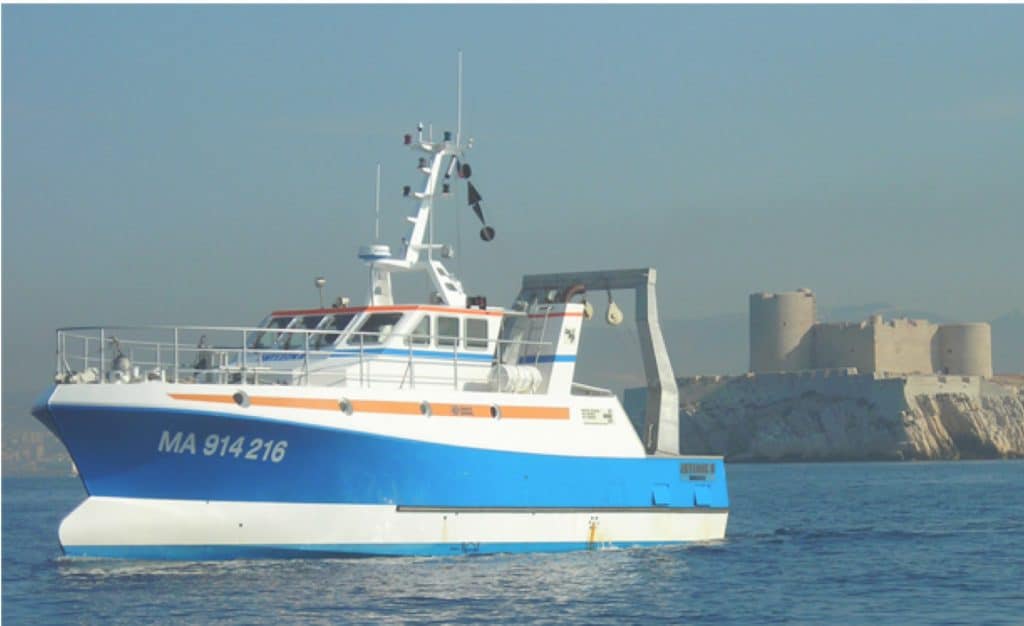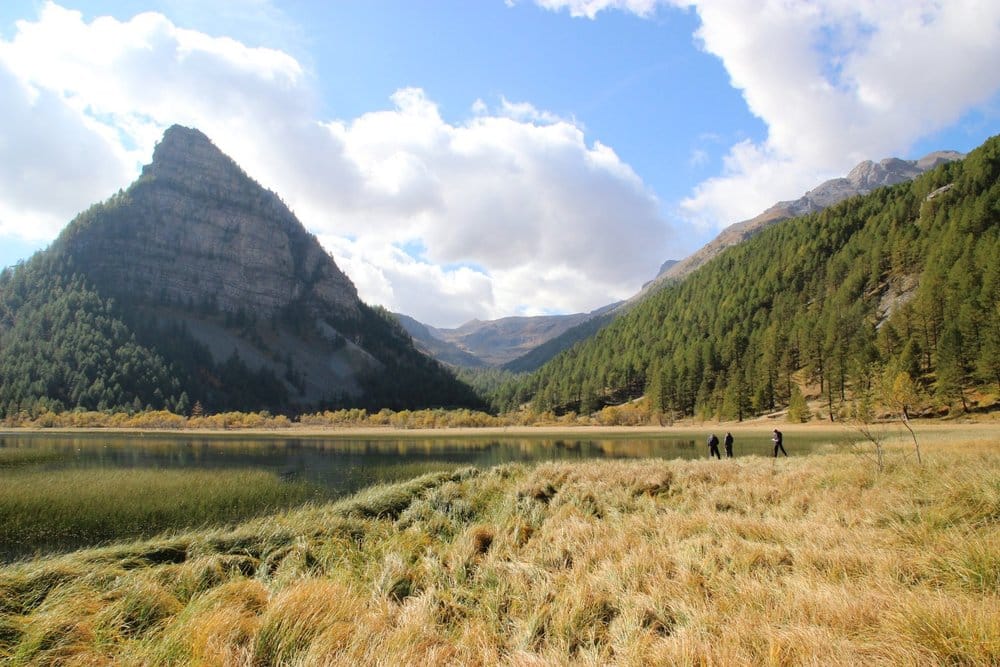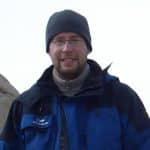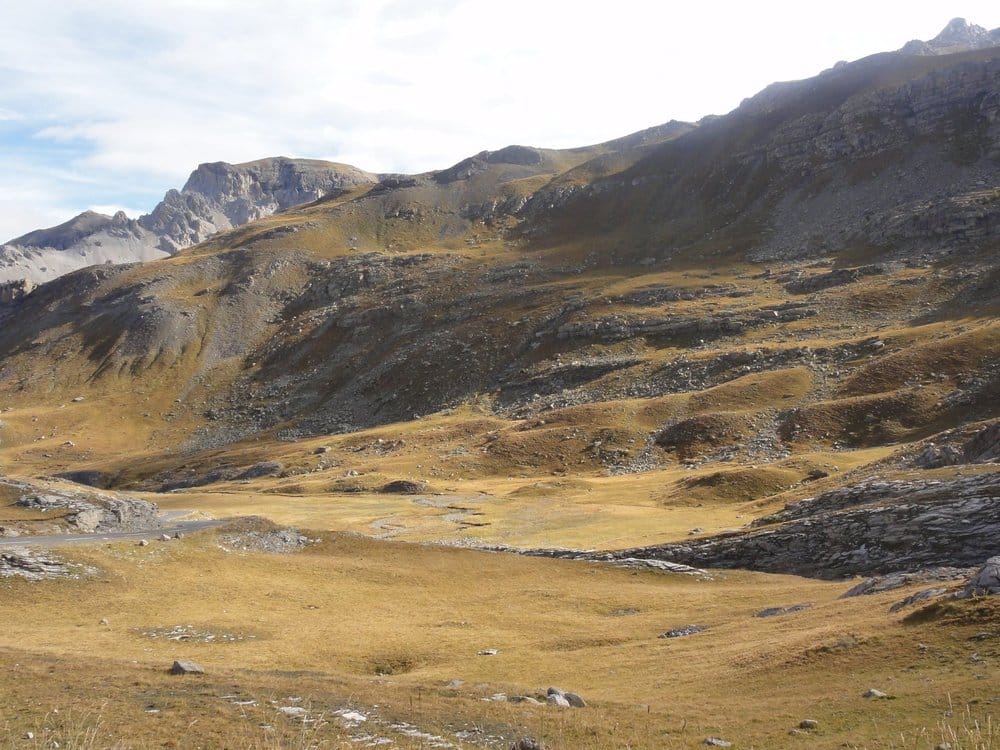International Master in Geosciences (IMG)
Présentation de la formation
From the start of the 2024 academic year, the STPE master’s program will offer an International Master in Geosciences (IMG) pathway, which will be taught partly in English in M1, and fully in M2.
The IMG pathway (International Master in Geosciences) of the STPE master’s program aims to provide students with cross-disciplinary knowledge and a cutting-edge scientific approach in Geosciences, focusing on major issues such as Global Change and natural hazards. The aim is to train specialists in processes affecting terrestrial or planetary surfaces and climate change, capable of using innovative methods and technologies, particularly in geomatics and geochemistry, to meet current and future environmental challenges.
Graduates will have acquired a triple competency: (1) a solid background in Geosciences in line with the latest methodological research advances, (2) the ability to reinvest the acquired disciplinary and thematic knowledge to provide a scientific context for environmental problems that is relevant and objective in professional situations, and (3) the mastery of rigorous dissemination, in English, of the knowledge acquired for both experts and non-specialists.
Head of education program
Yoann QUESNEL is associate professor in geophysics. He teachs a lot of geophysics (including field geophysics), GIS, numerical methods, natural hazards. His research focuses on the geophysical signatures of geological objects, and of impact craters in particular. His studies have geological, planetological and sometimes archeological applications.
Christelle CLAUDE is an isotope geochemist and an Aix-Marseille University faculty member, working at CEREGE. She is teaching geochemistry and isotope geology and methodology of academic works. Her research interests focus on applying naturally occurring nuclides as tracers and geochronometers (Sr, Pb, U-series) to a range of earth science problem stretching from, volcanism, tectonics to paleoclimatology and paleo-oceanography, hydrology and geomorphology.
Education and research
Le parcours IMG fait intervenir des enseignants-chercheurs d’Aix-Marseille Université aux compétences variées couvrant différents domaines et problématiques depuis l’étude de l’évolution climatique récente jusqu’à la caractérisation des aléas naturels. La majorité d’entre nous est rattachée au CEREGE (Centre de Recherche et d’Enseignement de Géosciences de l’Environnement) sur le site de l’Arbois (Aix-en-Provence).
Knowledge and skills
The aim of this course is to acquire the scientific knowledge needed to understand the dynamics of geological and environmental systems, present and past climates, and continental and planetary surfaces. It applies a scientific approach based on observation and analysis, from the field to the laboratory. The International Master in Geosciences (IMG) program will focus specifically on paleoclimates, natural hazards (seismic), geomorphology and planetology.
- Use scientific, disciplinary and cross-disciplinary knowledge
- Develop a relevant scientific approach to produce innovative results
- Communicate professionally, orally and in writing, in English
- Develop individual or team projects
- Apply disciplinary skills in the professional environment


Education methods
The program includes core modules common to all OSU Pythéas Masters in the first semester, a STPE core common to the IMG and GRT pathways, and a number of optional courses in M2 enabling students to fine-tune their profile. The teaching is essentially face-to-face, with lectures and practical activities varying from unit to unit. One of the special features of the program is the strong emphasis on fieldwork, with 2 field schools planned (M1 and M2) and day trips in various teaching units. Project-based learning (APP) units, emphasizing active pedagogy, are offered every semester.
In M2, the 4th semester (S4) is entirely devoted to an internship in a laboratory or company (30 ECTS) that enables students to gain professional experience and apply the skills taught. We also offer an introductory research internship in M1 and Project-Based Learning (APP) modules in each semester (S1, S2, S3) enabling the acquisition of skills and knowledge as part of an active learning approach around the key themes of the course.
Classical pedagogy, tutored projects, problem-based learning, real-life situations, fieldwork. Final exams and continuous assessment. Teaching in English from S2 onwards.
In M2, the 4th semester (S4) is entirely devoted to an internship in a laboratory or company (30 ECTS) that enables students to gain professional experience and apply the skills taught. We also offer an introductory research internship in M1 and Project-Based Learning (APP) modules in each semester (S1, S2, S3) enabling the acquisition of skills and knowledge as part of an active learning approach around the key themes of the course.
Disciplinary fields
Environmental sciences; Environmental engineering; Climate; Natural hazards; Geomatics and GIS; Geochemistry and geophysics; Tectonics; Geomorphology
Careers
Researcher – manager – engineer in environmental geosciences
Graduates can become researchers or engineer-level managers in academia, companies involved in geosciences and their application to environmental issues, local authorities and other organizations requiring geosciences expertise. The Master’s degree can also be followed by a PhD in a research laboratory.
The IMG course is specifically designed to prepare students for a career in an international working environment.
Employabilité à 8 mois après obtention du diplôme
Accès et conditions d’emploi
- 10|62,5% sont en emploi*
- 9|90,0% ont obtenu leur premier emploi en moins de 3 mois
- 9|90,0% ont un emploi localisé en France métropolitaine
- 4|40,0% ont un CDI
- un salaire net mensuel entre 1200€ et 2300€ (méd = 1595€)
- 7|70,0% ont un emploi de niveau « cadre »
- 5|50,0% ont un contrat doctoral
- 8|80,0% déclarent l’adéquation du niveau de l’emploi occupé au diplôme
- 8|80,0% déclarent l’adéquation du domaine de l’emploi au diplôme
Liste des emplois occupés sous contrat doctoral
- Doctorant contractuel chez Aix-Marseille Université [CDD]
- Doctorant contractuel chez Aix Marseille Université [CDD]
- Ingénieur / Cadre chez AIC Environnement [CDI]
Liste des emplois occupés sous contrat CDI
- Responsable Achats & Géologue consultant chez VETISOL [CDI]
Liste des emplois occupés sous contrat CDD
- Ingénieur / Cadre chez Total [CDD]
- Technicien chez Orano [APP]
Profils étudiants des répondants (base : 21 répondants)
- 91,7% en formation initiale
- 66,7% d’hommes et 33,3% de femmes
- 24 diplômés en formation initiale enquêtés
- 21 répondants dont 10 en emploi
Source : AMU OVE – 3/1/2020 – Mention STPE 2019/20
Admission conditions
Access to M1 or M2: Students must submit an application file, which will be examined by the OSU Pythéas pedagogical committee. For more details on how to apply, visit the OSU Pythéas website.
Application file
You may apply through our dedicated admission webpage
Zoom on first year study
Vincent Godard is a faculty member of Aix-Marseille University, working in CEREGE. He teaches data processing, geomatics and geomorphology in the STPE Master’s program. His research focuses on the evolution of mountain range relief and erosion processes.
CONTACT

vincent.godard@univ-amu.fr
> WebSite
The word of the master coordinator
The Earth and Planetary Sciences, Environment (STPE) Master aims to provide students with cross-disciplinary knowledge and a cutting-edge scientific approach in Geosciences, focusing on major issues such as Global Change, resources and natural hazards.
Teaching staff
The STPE Master’s program is run mainly by faculty and staff from CEREGE (Centre Européen de Recherche et d’Enseignement en Géosciences de l’Environnement), a department of OSU Pythéas.
CEREGE hosts a very wide range of research themes, including paleoclimatology, geomorphology, active tectonics, environmental tracers and pollution, geochronology, sedimentary systems and reservoirs, Earth and rock magnetism, planetology and meteorites. CEREGE is home to a dense network of analytical facilities, with a particular focus on environmental geochemistry and geochronology, as well as geophysics and geomatics. The STPE Master’s program takes full advantage of CEREGE’s scientific environment to offer students a unique experience in contact with cutting-edge research facilities.
Knowledge and skills
The aim of this MSc program is to acquire the scientific knowledge needed to understand the dynamics of geological and environmental systems, present and past climates, and continental and planetary surfaces. It applies a scientific approach based on observation and analysis, from the field to the laboratory. Two pathways are offered, focusing on specific areas of the Geosciences.
(1) International Master in Geosciences (IMG): paleoclimates, natural hazards (seismic), geomorphology and planetology,
(2) Geology of Resources and Territories (GRT): sedimentary and structural geology, geomechanics and petrophysics.

- Develop a relevant scientific approach to produce innovative results
- Use scientific, disciplinary and cross-disciplinary knowledge
- Communicate professionally, orally and in writing, in French and English
- Develop individual or team projects
- Apply disciplinary skills in the professional environment
Educational methods
The program includes core teaching units common to all OSU Pythéas Masters during the first semester, a STPE core common to the IMG and GRT pathways, and a number of optional courses in M2 enabling students to fine-tune their profile. The teaching is essentially face-to-face, with lectures and practical activities varying from teaching units. One of the special features of the program is the strong emphasis on fieldwork, with 2 field schools planned (M1 and M2) and day trips in various teaching units. Project-based learning (APP) units, emphasizing active pedagogy, are offered every semester.
Publics spécifiques
Formation initiale
Formation continue
Conditions d’admission M1
Sciences de la Vie et de la Terre ; Sciences de la Terre ; Physique, chimie ; Géographie et aménagement
Critères d’examen des dossiers
Parcours et résultats académiques antérieurs
Projet professionnel
Compétences acquises hors parcours académiques
Modalités d’admission
Dossier
Entretien
Dates de la campagne de recrutement
Vous pouvez candidater à nos formations : toutes les informations sur la page admission de notre site de composante de rattachement à Aix-Marseille Université (vous quitterez alors ce site)
Campus d’enseignement
Marseille Centre Saint Charles
Aix-en-Provence Arbois
Wide view on education program
Vincent Godard is a faculty member of Aix-Marseille University, working in CEREGE. He teaches data processing, geomatics and geomorphology in the STPE Master’s program. His research focuses on the evolution of mountain range relief and erosion processes.
CONTACT DU RESPONSABLE

vincent.godard@univ-amu.fr
> Site Web

